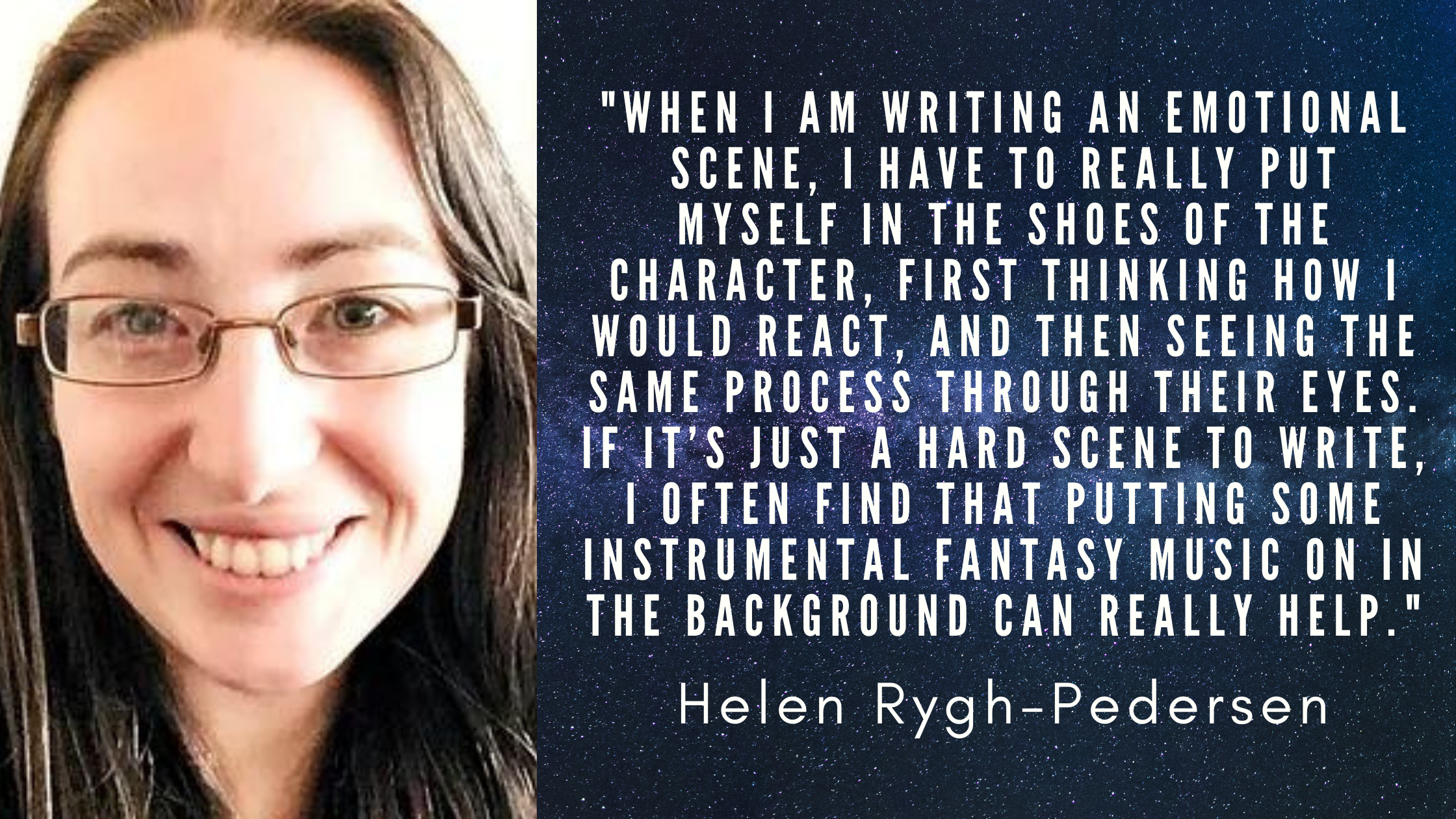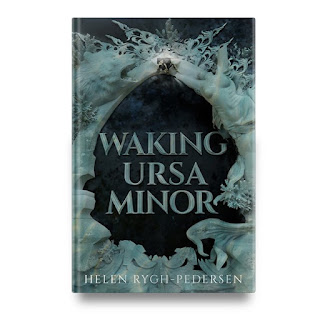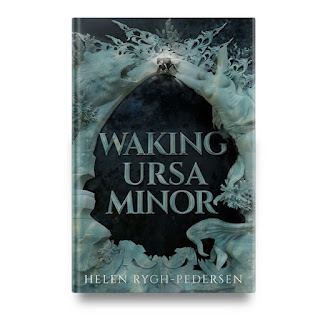Author Interview - Helen Rygh-Pederson
She graduated from the University of Exeter with a BA in French and Italian and after a brief career teaching languages in the UK, she moved to Norway with her family. It was here that she really reignited her passion for creating worlds. She dipped her toe into the publishing process by first releasing her dystopian short story, Heifer, and a picture book which she illustrated herself, A Whiff in the Woods, before taking the leap with her debut novel. Waking Ursa Minor is the first book in her Riverda Rising epic fantasy series.
When she isn’t writing she can be found spending time with her family, sewing and knitting or catching up on the latest fantasy series.
Genre: Epic Fantasy
Q&A:
Q1: What is the name of your latest book and what inspired it?
My latest, or should I say, first, book is called Waking Ursa Minor. It’s been a long time in the making and actually started with a “novel” I wrote when I was 11 years old involving a plane crash where the teen protagonists find themselves on an island called Utopia. I am very pleased to say, however, that only two things remain from the original book; a character name and one event which I won’t mention as it contains spoilers. Since then, I guess my constant moving to new countries inspired places and cultures within the book.
Q2: When you’re writing an emotional or difficult scene, how do you set the mood?
When I am writing an emotional scene, I have to really put myself in the shoes of the character, first thinking how I would react, and then seeing the same process through their eyes. If it’s just a hard scene to write, I often find that putting some instrumental fantasy music on in the background can really help.
Q3: What authors, or books have influenced you?
I guess the author that really introduced me to fantasy was Brian Jacques and his Redwall series, closely followed by J.K.Rowling and Harry Potter. Had it not been for them I wouldn’t have fallen in love with fantasy and found my all-time favourites; Robin Hobb, Patrick Rothfuss, and Brandon Sanderson. I’ve just started reading The Wheel of Time and I’m amazed I didn’t come across Robert Jordan sooner. The same also goes for Jay Kristoff, as I do like my fantasy on the darker side.
Q4: When did you first realise you wanted to be a writer?
I knew from a very young age that writing filled a space within me and someday I wanted to write a book. However, as I’m sure many of us were, I was encouraged to “get a real job” and so sadly my dreams of being an author fell to the wayside for a while. But after moving to Norway and not working for a while, I rediscovered both my love for writing and my dream.
Q5: What advice would you give to a writer working on their first book?
Just get that first draft finished! Don’t bog yourself down doing all the ‘research’ you think you should be doing, all the techniques you need to be applying, just get the story down and you can tart it up later.
Q6: What was one of the most surprising things you learned in creating your books?
That you aren’t as alone as you think. There are hundreds and thousands of like-minded people out there trying to fulfill their dreams of publishing a book. They are at all stages of the journey and, in my experience, they are all lovely and very encouraging. I wish it hadn’t taken me so long to find the online writing community.
Q7: What was an early experience where you learned that language had power?
Oh, that’s a tough question. Hmm. I think it would have to be from when
I was at school. I was only about 10 years old and the school was faced with
closure. It was also around the turn of the millennium and we were asked to
write some short poems for the new year.
I wrote about 4 all based on the
topic of time and was surprised to find that any of the parents or staff that
read them started crying. I guess they just really hit a nerve with everything
that was going on at the time.
I am very pleased to say, though, that the school was saved and is still open to this day.
Q8: What was the first book that made you cry?
Ha! This question makes me laugh because although I love to try and make people cry with my writing, it is very rare for a book to make me cry. To be completely honest, I can’t even remember the last book that made me cry, let alone the first! Recommendations welcome!
Q9: What are you working on now?
I am working on Book Two of the Riverda Rising series. It’s actually more of a companion novel than a direct sequel, but there are a few cameos from familiar characters. Then it will all come together in Book Three which I can’t wait to start writing.
Q10: What are you currently reading?
At this precise moment I’m between books. I just finished Nevermoor, which I thoroughly enjoyed and reminds me I must read more middle grade books from time to time. Next up? I can’t decide between The Great Hunt (WOT book 2) or Gardens of the Moon (Malazan Book of the Fallen book 1).
Keep reading for a sneak peek at Waking Ursa Minor
Serakela
couldn’t breathe, she felt numb all over, her limbs as solid and unmoving as
the chunks of wood that lay by the unlit fire. Who was she? Everything she knew
or thought she knew about herself was changing, shifting from reality to
confusing fantasy. Remembering the face that had stared back at her from the
mirror earlier, however, it struck her that this could be part of her true identity.
“Safe?”
she croaked, coming back to the present. “Why would I not be safe?”
Madame
stood and walked to the desk.
“Your
parents were on a mission, trying to find something very old and very
important. But they were being pursued. They did what they thought was right by
leaving you here, away from the eyes of those who would do you harm, to grow up
in peace and re-join them when you came of age.” She took a small leather-bound
document pouch out of a locked compartment in the ornate desk.
“They
left you this. They said it would tell you what you need to know.”
She
held out the pouch and waited for Serakela to take it. The gap between her hand
and the papers felt like a chasm. If she took that pouch, there was no going
back to what she had known all her life, no knowing what would come next. And
if she didn’t… She had already seen the alternative and knew it wasn’t an
option.
“Why
now? Why are you telling me this now?”
“Because,
my dear, a man has come to kill you.”
To find out more about Helen Rygh-Pederson, check out the social media links below:
If you enjoyed this interview, please consider Buying Me A Coffee to keep these interviews going :)






Comments
Post a Comment